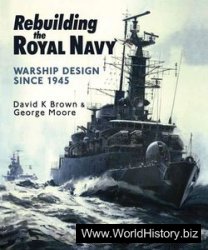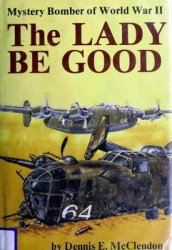Vladimir Ilyich Lenin, a Marxist revolutionary, took power in Russia in
November 1917. By this stage in World War I, most of Europe's governments
and societies were shaken by the trauma inflicted by the conflict.
Lenin was the most successful radical leader to use this rare opportunity,
raising himself from obscurity to national leadership.
Lenin was bom Vladimir Ilyich Ulyanov on April 22, 1 869, in Simbirsk in
western Siberia. He was the son of a school administrator who died when
Lenin was sixteen. Vladimir's youth was harshly disrupted in 1887 when his
elder brother, Alexander, was executed for plotting to kill Tsar Alexander in.
Lenin entered the Marxist political movement in Russia in the early 1890s.
By the outbreak of World War I, he had become the leader of a small faction
of Marxists known as the Bolsheviks. He also had acquired a sharply defined
reputation as an independent, willful, and unorthodox follower of Marxist
doctrine. He differed from most Russian Marxists in a number of areas.
Lenin called for an elite party based on educated, full-time revolufionaries.
It would operate underground while the tsar's government did not permitopen
political activity, and would consist principally of middle-class intellectuals
who would lead the cause of the factory workers. Moreover, he
wanted to bring the peasantry to play a supporting role in a future revolution,
aiding the factory workers whom all Marxists saw as the driving force in
revolutionary change.
At the outbreak of the war, Lenin adopted still another controversial
position. Many Marxists throughout Europe refused any support to their
governments, a position Lenin found too weak. He saw the war as an
opportunity for Marxist revolutionaries to take power. Thus, Lenin called
for turning the international war into a series of civil wars as the proletariat
struck at their middle-class rulers. Specifically, and to the shock of even his
fellow Marxists, he hoped for Russian military defeats to make the revolutionary's
task easier. Finally, the Bolshevik leader came to reject the idea
that an initial revolution overthrowing the tsar had to be followed by an
interval of years or decades of economic development before a workers'
revolution could follow. Radical even when compared to his fellow Marxists,
Lenin claimed that the war would end for Russia only if its capitalist
leaders were also overthrown. This articulate, stubborn man in his mid-forties
seemed to more moderate revolutionaries someone in a hurry to take
power, even at the cost of bending Marxist ideology.
Wartime conferences in Switzerland in 1915 and 1916 brought together
Marxists from both sides of the fighting line. Lenin found he could not win
over a majority to back his position of turning the war into civil wars. But
he was unwavering. In 1916, in a book entitled Imperialism, he argued that
the conflict had arisen out of the economic competition of the imperialist
Great Powers. It could end only when the workers in Europe's belligerent
countries overthrew those governments. In March 1917, while living in
Zurich, Switzerland, Lenin received word of the spontaneous revolution that
had broken out in Russia's capital. He returned to his country in April, soon
after the new Provisional Government had announced it would stay in the
war. He got vital help from German authorities to reach Russia from
Switzefland. They hoped he would help to push Russia out of the war.
Upon his arrival at Petrograd's Finland Station, Lenin denounced the
Provisional Government. He offered a radical agenda: land to the peasants,
control of factories to the workers, and Russia's immediate withdrawal from
the war. The program proved attractive, notably in the urban centers of the
country. There, Russia's long string of military defeats and the harsh living
conditions brought on by the war had pushed many Russians, such as factory
workers and their families, to desperation.
An initial effort to take power failed in July, and Lenin was forced into
hiding. But in November 1917, Lenin and his Bolshevik faction (soon
renamed the Communists) took control of Russia's main cities: the capital,
Petrograd, and the old capital, Moscow. They lacked the power to dominate
the countryside, but the Communists formed the only effective center of
government inside Russia.
Within a matter of days, Lenin as leader of the new government and Leon
Trotsky as the director of foreign affairs began negotiations for an armistice.
They found that Russia's wartime allies would not join them in this effort.
An isolated Russia had to negotiate on its own. The armistice between
Russia and the Central Powers was signed on December 15, 1917, and was
followed by peace negotiations at Brest-Litovsk.
Lenin dominated the process of peacemaking. The Germans demanded
that Russia surrender large stretches of territory along its western border
and make economic concessions. Some Communists like Nikolai Bukharin
wanted to continue the war in order to promote revolution in enemy
countries like Germany. Trotsky, chief negotiator at Brest-Litovsk, wanted
to end the fighting without making any formal agreement with the Germans.
Lenin rejected their views. Using his prestige as the Communist party's
leader, Lenin got the other principal figures of the party to agree to the harsh
German terms. He made it clear that he did not expect the settlement
imposed by the Treaty of Brest-Litovsk in early March 1918 to be a
permanent one. Nonetheless, it gave German leaders like General Erich
Ludendorff the hope of removing forces from Russia to strike on the western
front in the spring of 1918.
In the waning months of World War I, Lenin faced the start of armed
intervention by Russia's former allies such as the United States, Britain, and
France. By then, a diverse coalition of anti-Bolshevik Russian forces known
as "the Whites" controlled large portions of Russian territory. The ensuing
civil war lasted until the closing months of 1920.
Although disabled by a series of strokes starting in the spring of 1922,
Lenin remained the head of the government of Soviet Russia (renamed the
Soviet Union in 1922). During these last years, he initiated the New
Economic Policy (NEP). A temporary departure from revolutionary ideals,
NEP let the battered country recover from its long ordeal. The Communist
party now permitted a partial revival of free enterprise and relaxed political
controls on the Russian population. This final major decision in his political
life again showed Lenin's immense tactical skills. He died in Moscow on
January 21, 1924.




 World History
World History









